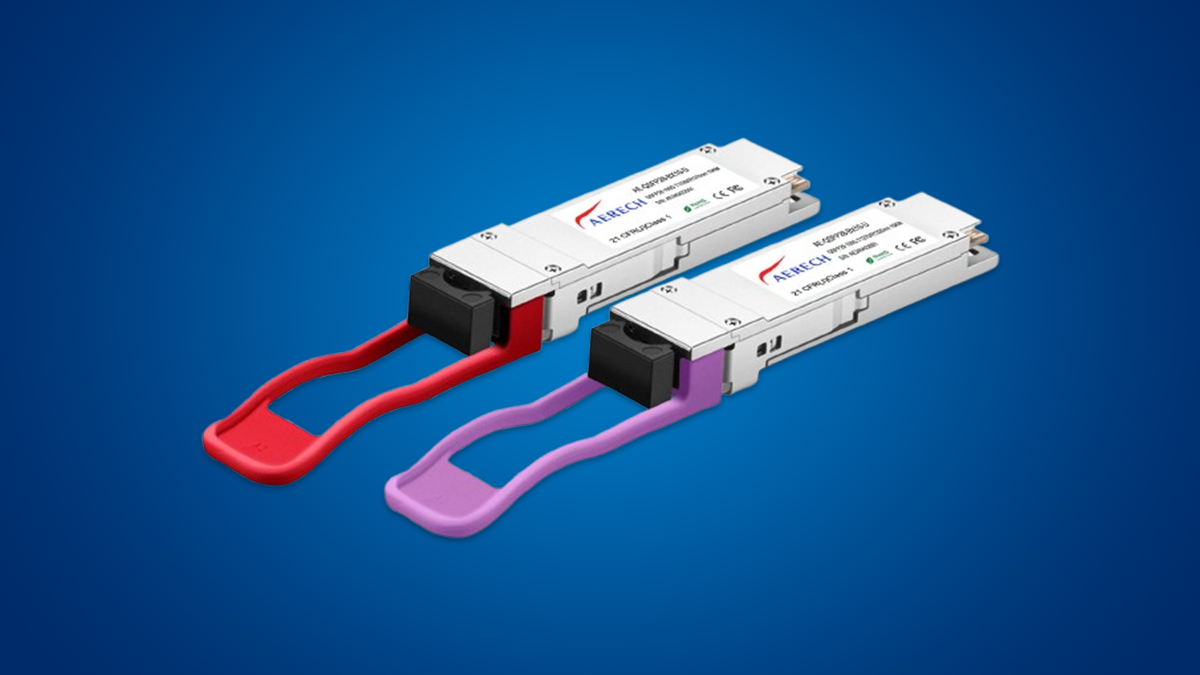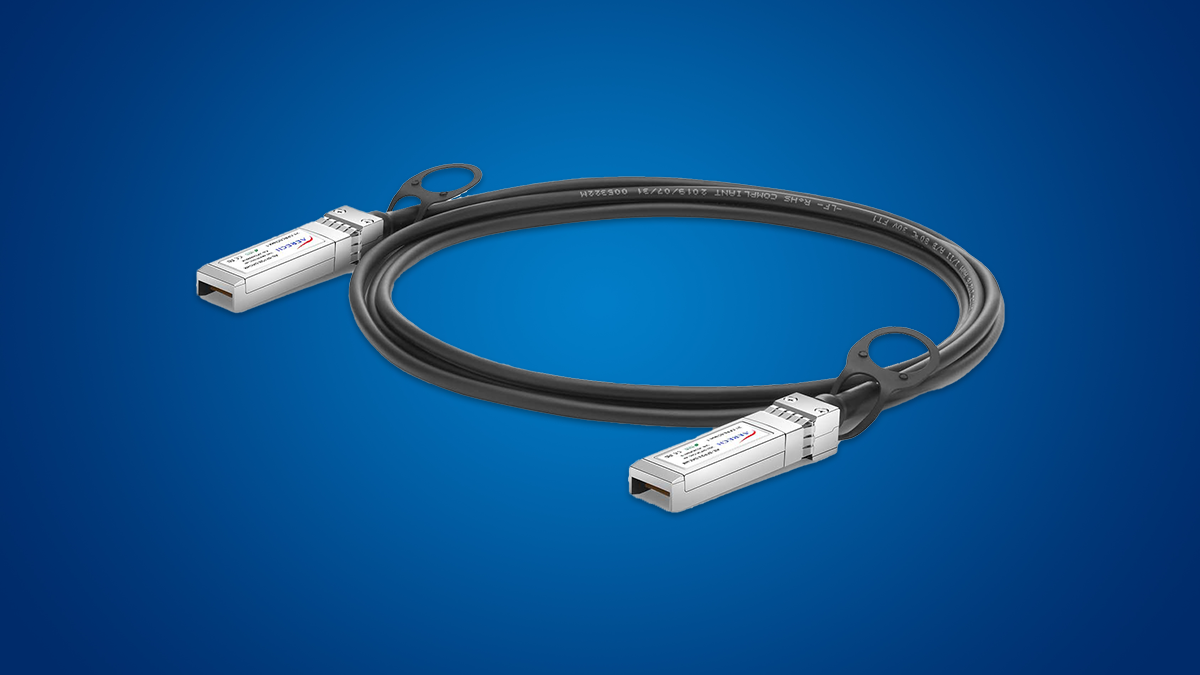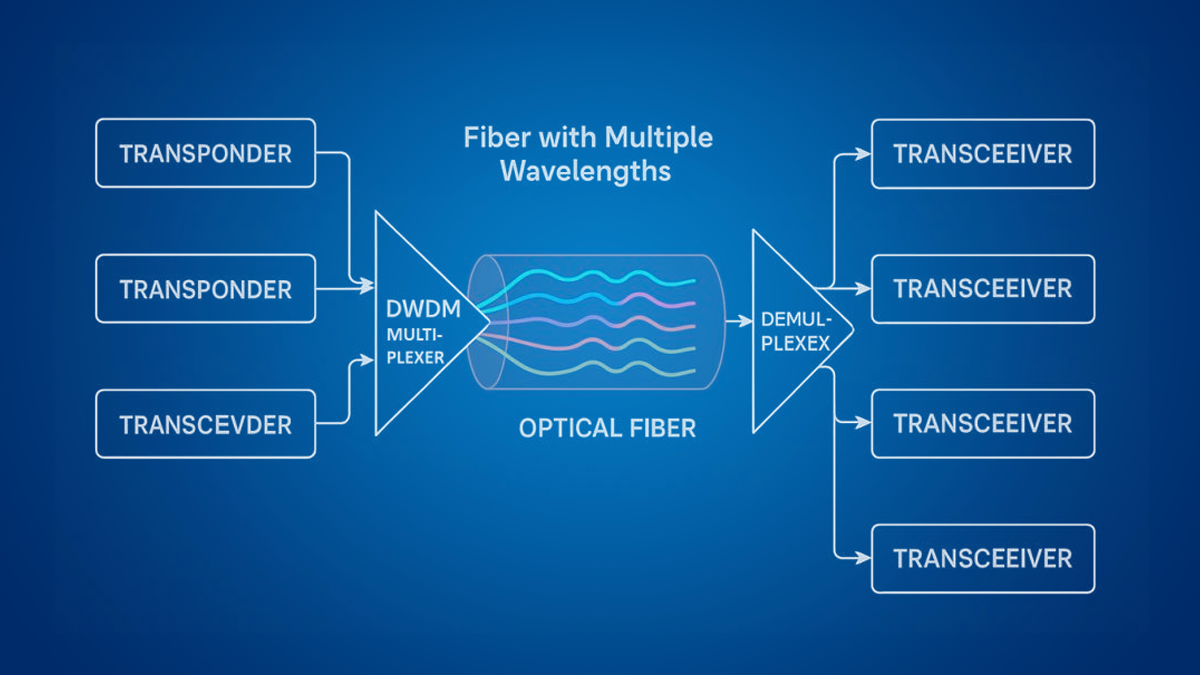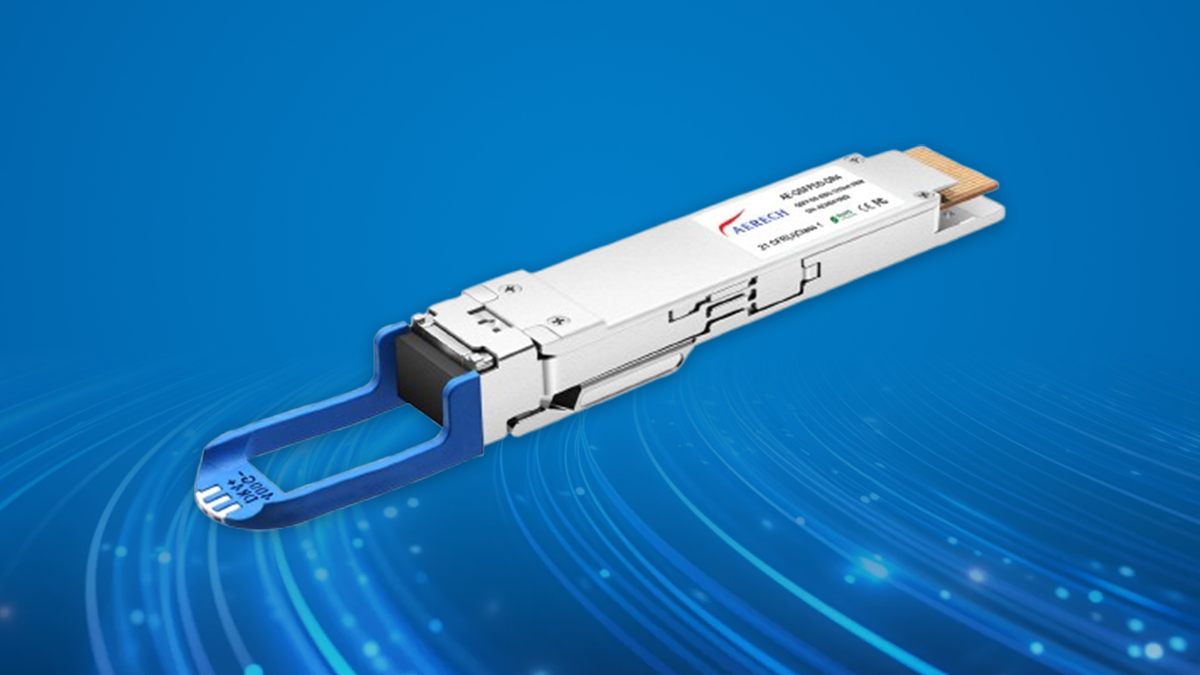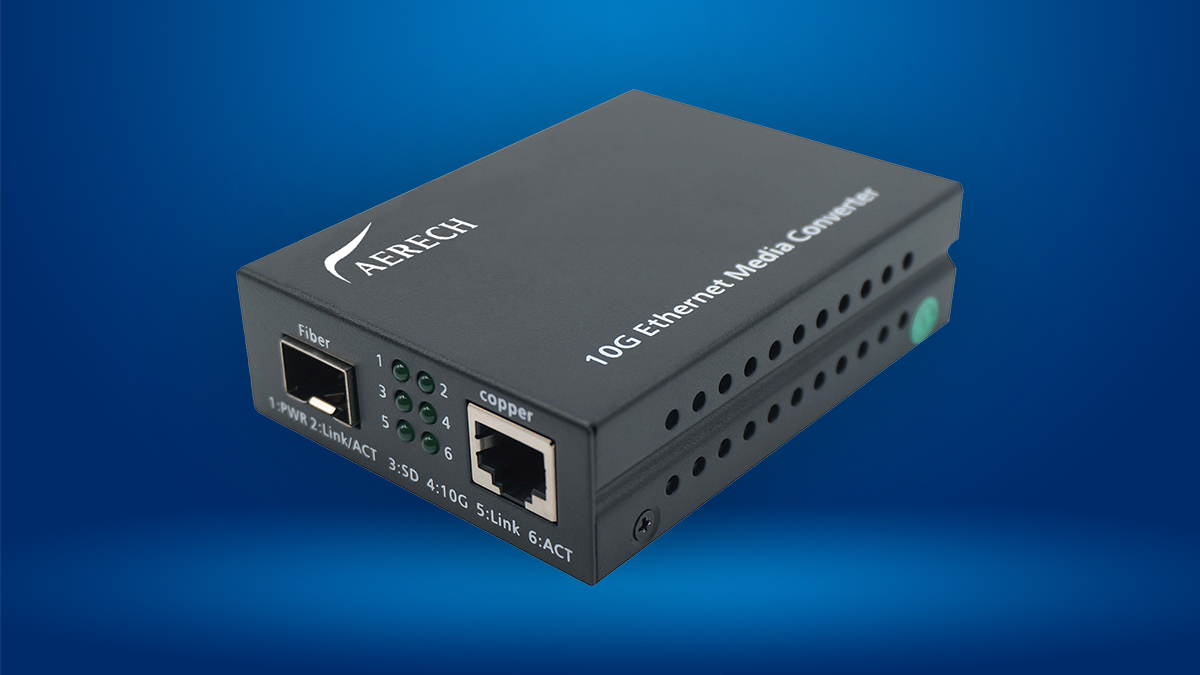Insights and Innovations in Optical Networking: Exploring the World of AERECH
Take you to know the latest developments in the industry and pay attention to new trends
Blog
100G BIDI QSFP28 Optical Transceivers for Long-Reach Networks
The 100G BIDI QSFP28 optical transceiver (also called a 100G QSFP28 BIDI module or 100G QSFP28 single fiber transceiver) is a high-performance optical module that sends and receives 100Gigabit Ethernet (100GbE) traffic over a single strand of single-mode fiber (SMF). Using bidirectional Wavelength Division Multiplexing (WDM), each module transmits and receives on different wavelengths (for example, 1271 nm and 1331 nm for a 10 km link). This innovative design doubles fiber capacity and cuts cabling costs by about 50% compared to traditional dual-fiber QSFP28 transceivers. Despite using only one fiber strand with a simple LC connector, a 100G BIDI QSFP28 runs at full…
What is a 25G DAC Cable?
Introduction In today’s fast-paced digital world, data centers need reliable, scalable, and cost-effective networking solutions. As bandwidth demands rise, 25G technology has become one of the most popular choices for cloud providers, enterprises, and telecom operators. Among the many interconnect solutions, 25G DAC cable stands out for its efficiency, affordability, and low latency performance.In this guide, we’ll break down what a 25G DAC cable is, why it matters for modern networks, how it compares with other options, and what you need to consider before deployment. What is a 25G DAC Cable? A 25G DAC cable (Direct Attach Copper cable) is…
EDFA Technology and Applications in DWDM Systems
In the world of fiber-optic communication, Optical amplifiers play a crucial role in boosting signal strength over long distances. One of the most commonly used optical amplifiers is the Erbium-Doped Fiber Amplifier (EDFA). In this blog post, we will delve into the technology and applications of EDFA in Dense Wavelength Division Multiplexing (DWDM) systems. Introduction to Optical Amplifier—EDFA An Optical Amplifier is a pivotal technology in the field of optical communication, designed to bolster the intensity of an optical signal without the necessity of its conversion into an electrical signal for amplification. Among the spectrum of optical amplifiers available, the…
Application Scenarios of Optical Modules
With the development of 5G, big data, Internet of Things, cloud computing and artificial intelligence, the data traffic is growing rapidly, and the market prospect of optical communication is bright. The function of the optical module is photoelectric conversion. Optical modules are widely used in various industries. Aerech Networks will use this article to introduce you to the application scenarios of optical modules. Before introducing the application scenarios of optical modules, let me introduce you to the market segments of optical modules. (1) Ethernet: Mainly used in local area networks, connecting network hardware devices by sending and receiving data signals.…
400G QSFP-DD Optical Modules Introduction
As global data traffic surges, data center networks are shifting from 100G to 400G. 400G optical modules emerge as a cost-effective solution, boosting system performance, transmission rates, bandwidth, and cutting broadband costs. This article focuses on the 400G QSFP-DD optical module, covering its packaging, applications, challenges, and future trends. Common 400G QSFP-DD optical module types 400G QSFP-DD SR8 The 400G QSFP-DD SR8 Transceiver is optimized for transmitting and receiving serial optical data links at an impressive 8 x 53.125Gbps data rate, utilizing the PAM4 modulation format over multi-mode fiber. With its MPO-16 connector, it supports multimode fiber links extending up…
Media converter Introduction
In today’s digital age, networks play a crucial role in connecting devices and facilitating seamless communication. However, not all devices are compatible with the same network infrastructure. This is where media converters come into play. Media converters bridge the gap between different network types, allowing for smooth data transmission. In this blog post, we will explore what media converters are, the benefits they offer, the different types available, factors that determine their cost, and how to choose the right media converter for your network. What is a Media Converter? A media converter is a networking device that enables the conversion…
Exploring Fiber Optics: A Comprehensive Overview by Aerech Networks
Optical fibers, made from glass or plastic, serve as efficient tools for transmitting light using the principle of total internal reflection. Encased in a flexible plastic sheath, these fibers can bend without breaking, offering a robust solution for information transmission. This article explores the working principles, types, and applications of optical fibers, shedding light on their significant role in modern communication. Working Principle Optical fibers operate on the principle of total internal reflection, ensuring minimal signal loss during transmission. At one end, a light-emitting device, such as a light-emitting diode or laser, sends light pulses into the fiber, while a…
COB vs. BOX Packaging Transceiver Optics: A Comprehensive Comparison
Explore the differences between COB (Chip-on-Board) and BOX (Airtight Package) packaging for high-speed optical transceivers in data centers. Learn about COB and BOX basics, applications, and advantages. Compare pricing, reliability, suitable transceiver types, size, manufacturing complexity, and more. Optimize your data center upgrade with insights from Optcore.

